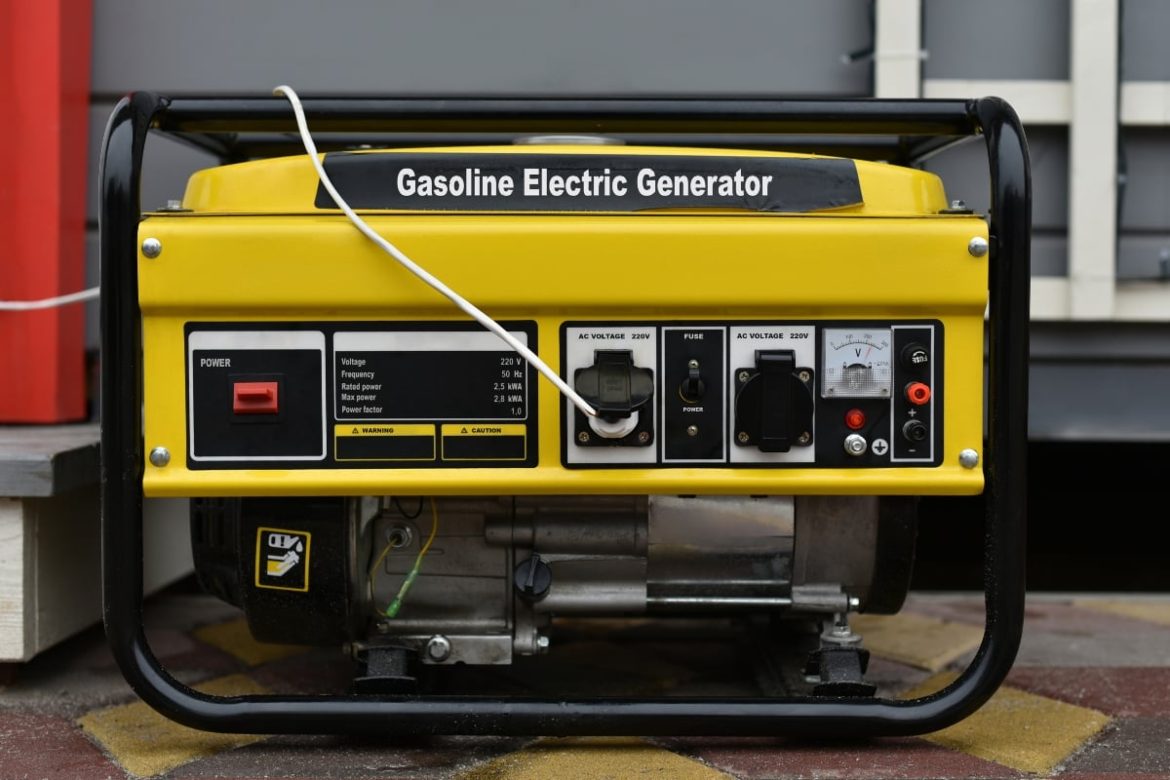Power outages can disrupt your life and spoil precious food stores. But with the right emergency backup generator, you can keep your family comfortable and safe during a power cut. Here’s are tips for choosing the best home backup generator for your family’s power needs.

Power outages can be more than an inconvenience. A home backup generator safeguards your investment in food in your fridge and freezer (saving hundreds!), keeps you warm in winter, cool in summer, and, most importantly, powers vital medical equipment during a crisis.
Which Type of Generator Will Better Meet Your Needs?
Let’s look at two types: fossil fuel and solar.
Fossil Fuel Generators
Let’s talk about standard gas, diesel or propane generators (fossil fuels) first. These types of generators are the standard ones most people have had for years. The simple truth about them is that they change mechanical energy from the engine itself into electrical energy. The main advantage of a standard generator is that they can power a majority if not all of a home for a reasonable cost.
The disadvantages are:
- Fuel. This is the main limiting factor for traditional type generators. You can only store so much and when it’s gone, it’s gone! No more fuel, no more generator power. And in a disaster, you may not be able to easily find fuel to resupply. Generally speaking the larger the generator, the more power consumption and therefore the more fuel needed.
- Noise. If you live in an area that has noise ordinances, consider dropping some extra dollars for a quieter running generator. Also, if there is imminent danger of civil unrest, you want something that runs more quietly to draw less attention to your home or property.
For these reasons, a traditional generator is a great short term solution to power outages rather than something to rely on for long-term grid-down crises.
Questions to Ask Yourself
In selecting a traditional generator there are several questions to consider:
- How many appliances do I want to run?
- How much combined power will they take?
- How much do I want to spend?
- How much fuel do I need to store?
Cost
Home generator prices can give you a bit of sticker shock. You can expect to drop $2000 – $5000 for a good quality generator and accessories. Of course the grand total is based on the brand you purchase, extra features and all that good stuff. You might be able to pick one up for less than that, but that will be based on your individual family needs. Also keep in mind like any combustion engine based equipment there will be maintenance involved such as oil changes, replacing worn parts, etc.
Solar Generators
On a different note a newer alternative to fossil fuel generators is solar generators/inverters. These work a little differently but offer at least four advantages over the traditional generators:
- Not dependent on liquid fuel. They are only dependent on sunlight, not liquid fuel, so if you live in a sunny state, like us here in Texas, they could be ideal for you.
- Silent running. These generators/inverters make no noise and are just as easy to setup as traditional generators, possibly even more so.
- No dangerous exhaust. Since there is no output of dangerous exhaust you can run them inside your home or outbuilding with no issues.
- No mechanical parts. The stored sun energy is usually captured in batteries either internal to the unit or external ones.
Cost
The downside is the cost as they can have a more expensive upfront cost than the traditional generators. A solar model might cost you a couple thousand more dollars than a comparable traditional generator. However, as more people switch to solar, those price could decrease.
Choosing the Right Generator Size
Where we live, we use central gas heat/electric air, city water and have a gas water heater so we would need a generator that produces 3000-5000 watts. If you have a well pump and/or larger furnace/cooling system, a 5000 to 6500 watt generator may be needed. To help determine your family’s needs, here’s a good wattage cheat sheet I found at Home Depot to help you determine your family’s needs.
Frequently Asked Questions
Get an electrician to install a switch into your existing home wiring. The switch might make it easier to change from the regular power grid to your own power. If you go this route, be sure to factor in the additional cost for parts and labor for the install. A switch is not required, but if you have multiple outages a year, it might make life a little easier to go to backup power and makes the transition smoother and safer by shutting off the grid power to your home.
You can use a battery setup to store some of the energy you produce into batteries. WWII submarines did the same thing by running diesel engines near the surface which charged batteries and allowed them to submerge for many hours and “run silent, run deep.”
Generators require regular maintenance such as oil changes, spark plug replacements, and air filter cleaning. Refer to the manufacturer’s instructions for specific maintenance schedules.
No. Gasoline and propane generators produce harmful carbon monoxide and should only be operated outdoors in a well-ventilated area. Solar generators are safe to run indoors.
Related Power Storage and Generation Content
FREE Power Outage Survival Handbook
Don’t let a power outage catch you off-guard. My guide, The Family Power Outage Survival Handbook, prepares you and your family for surviving without electricity whether the next outage happens in summer or winter weather. Request it here.
Final Thoughts
Armed with this knowledge, you’re now well-equipped to choose the perfect prepper generator for backup power generation for your family. Remember, a well-chosen generator can mean the difference between a stressful outage and a manageable inconvenience. So take some time to consider your needs, prioritize your essential appliances, and don’t be afraid to do some additional research on specific generator models. With a reliable backup power source in place, you can face any power cut with confidence, knowing your family will stay comfortable and safe.





